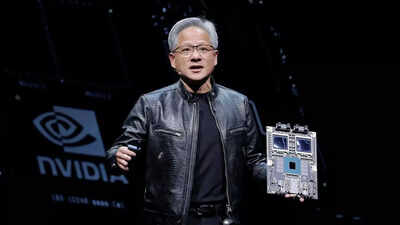US chipmaker Nvidia is reportedly facing a new hurdle in China when it comes to AI chips. China has instructed its domestic companies to avoid using Nvidia’s H20 chips, particularly for government-related projects. This move essentially complicates Nvidia’s – as well as AMD’s – efforts to recover billions in lost revenue and challenges the Trump administration’s agreement to secure a share of those sales. Notably, these chips are specially-designed for Chinese market and are watered down version of AI chips that are sold in the US.
New twist in chip war: China tells companies to avoid Nvidia and AMD AI chips
According to a report by Bloomberg, over the past few weeks, Chinese authorities have sent notices to various firms, advising against the use of less-advanced US semiconductors. The guidance was especially strong for any work related to the government or national security.This push also affects AMD’s MI308 chips, which, along with Nvidia’s H20, are part of a deal in which both companies agreed to give the US government a 15% cut of their China revenue in exchange for export licenses. Now, both companies face a new challenge: their Chinese customers are being pressured not to buy their products.Some of the notices sent by Beijing asked companies why they were choosing Nvidia’s H20 chips over local alternatives and whether they had found any security flaws in the hardware. These notices coincided with state media reports questioning the security and reliability of the H20. Nvidia has consistently denied these claims, stating that its chips are not military products and do not contain vulnerabilities.
China raises questions on US-based AI chips’ security and promotes self-reliance
The report said that China has two concerns: First, Chinese officials worry that Nvidia’s chips could have location-tracking or remote shutdown capabilities, a claim Nvidia has “vehemently denied.” Second, China is focused on building its own domestic chip industry and officials want Chinese companies to move away from Western chips and choose local options.Meanwhile, President Donald Trump has called the H20 chip “obsolete” and said China “already has it in a different form.” This aligns with a statement from Commerce Secretary Howard Lutnick, who claimed the H20 deal was part of a broader trade agreement to improve US access to Chinese rare-earth minerals.

